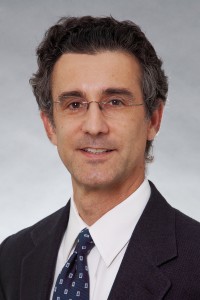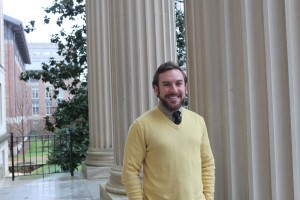For serial entrepreneur Mark Clein ’81, crafting his strategy for supporting Carolina’s history department was a bit like running a startup company.
“As with any enterprise, you want to make an impact with limited resources,” he said. “How can we be smart about deploying whatever capital we’re talking about?”
Clein, who majored in history, decided to deploy his capital for the cause of graduate and faculty research in his old department. The Clein Family Fund for Faculty and Graduate Student Support in the department of history has helped almost 70 professors and doctoral candidates pursue their research since it was started in 2008.
Each year, the Clein Fund helps 12 to 15 graduate students support their work over the summer while researching full time in special archives or in the field. This support often frees them from having to work a summer job and speeds completion of their degree. It also helps attract the best and brightest Ph.D. candidates, who in turn draw talented faculty and inspire the undergraduates they teach.
History faculty also use Clein monies to travel to conferences to present research, exchange ideas and interview candidates for UNC teaching positions. It is also a rare source of funds for the kind of special projects that every academic wants to do, such as a 2012 conference on global citizenship for which three faculty traveled to Japan and seven Japanese historians came to UNC the year before.
“The Clein Fund is a prime example of the kinds of things that private funding helps us to do,” said history chairman Lloyd Kramer. The history department has no state funds to support graduate students doing summer research, bring speakers to campus or organize special conferences and events.
Clein set up both an expendable fund to pay for needs in the here and now, and a permanent endowment fund that will produce payouts in the future.
After starting on Wall Street, Clein caught the entrepreneurial bug. He is now working on building the third life sciences company that he has started. Precision Health Holdings, based in Bethesda, Md., is a medical research company that helps other firms develop targeted or “personalized” medications. Before that, he co-founded another company that was sold to Medco Health seven years later.
All in all, Clein has had 20 years in the life science business. It’s all a far cry from his days at Carolina, a kid from Winston-Salem sitting in James Leutze’s military history class. An inspirational AP history teacher sparked his interest in history when he was a teenager at Reynolds High School. Today his favorite historical subject is ancient Rome.
He learns from all the students who use Clein funds for research. One is Dasa Mortensen, who spent summer 2012 in China’s Yunnan Province doing research for her dissertation on the Cultural Revolution. Scott Krause went to Germanyh for his work on postwar West Berlin. Anndal Narayanan spent two months in Paris studying French veterans of the Algerian War.
Stateside, students crisscross the country as well. Doctoral candidate Joshua Lynn used his Clein fellowship to go Chicago, Indianapolis and Ann Arbor to research his dissertation on the early days of the Democratic Party. With itineraries like this, Clein cracks, “We should call it the Southwest Airlines Fund.”
Clein serves on the board of directors for the Arts and Sciences Foundation, which raises private support for the College and its faculty and students.
Kramer says Clein is always thinking about ways to support the department’s new ideas. Clein’s latest twist is support for three graduate students to work summer internships in public institutions such as history museums, national parks or historic preservation groups, where they would interact directly with the public.
“Mark understands the full range of our programs and aspirations,” Kramer said, “from advanced research to outstanding teaching to public history.”
[Story by Rah Bickley ’86]


